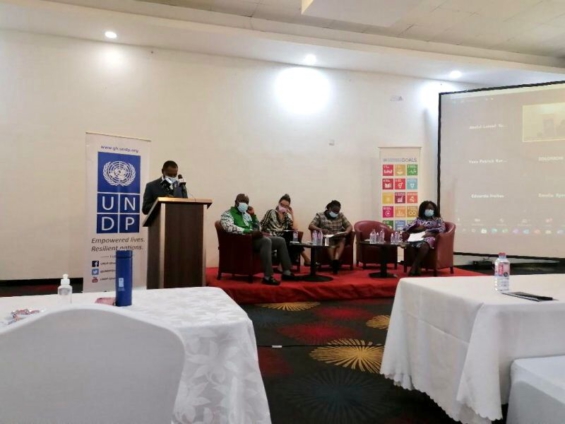The Chief Executive of Private Enterprises Federation, Nana Osei-Bonsu has called for more investments in renewable energy since its residue will aid firms in the agriculture sector to compete in the Africa Continental Free Trade Agreement (AfCFTA).
According to him, leftover from non-conventional use of renewable energy can be used as compost to boost agricultural production.
Speaking at the Private Sector Climate Change Investment Forum, Mr. Osei-Bonsu said “as companies seek to expand operations through industrialisation, they require more reliable and sustainable power at competitive pricing. The way to go is the use of nonconventional renewable energy such as biomass, solar energy, wind energy and others. These sources of energy are cheaper, environmentally friendly, sustainable and supportive of green climate initiative.”
“These energy sources and their residual compost will boost agricultural productivity, create jobs especially for the youth and women, increase revenue for the private sector players and reduce the negative ecological impact as a result of human activities,” he stressed.
Head of Climate at Economic Strategy and Research Division at the Ministry of Finance, Adwoa Faikue disclosed that $107million have been approved to invest in climate in Ghana.
“Ghana since joining the Green Climate Fund has submitted about 18 proposals; some from the private sector and public sector as well. Out of the 18 proposals, nine have been approved. So, in total, we have received about $107million in approval. Notably among them are the programme on Affirmative Finance Action for Women In Africa, Financing Climate Resilience Agricultural Practices In Ghana For Women In Agriculture, Ghana Share-Landscape Emission Reduction Project, among others,” she said.
Meanwhile, Deputy Resident Representative of UNDP, Jelena Raketic, said investing in climate change has the potential to create 65 million jobs. According to her, renewable energy has massive economic benefits which when fully unlocked will benefit Ghana and the continent as a whole.
“Studies have showed that both climate action will trigger $26 trillion in economic benefits globally by 2030 and create 65 million jobs. But the question is, how do we unlock these benefits? I think aside some political bills, what we really need is efficient financial deployment,” she indicated.
Latest Stories
-
Paris 2024: Opening ceremony showcases grandiose celebration of French culture and diversity
3 hours -
Spectacular photos from the Paris 2024 opening ceremony
4 hours -
How decline of Indian vultures led to 500,000 human deaths
4 hours -
Paris 2024: Ghana rocks ‘fabulous fugu’ at olympics opening ceremony
5 hours -
Trust Hospital faces financial strain with rising debt levels – Auditor-General’s report
5 hours -
Electrochem lease: Allocate portions of land to Songor people – Resident demand
5 hours -
82 widows receive financial aid from Chayil Foundation
5 hours -
The silent struggles: Female journalists grapple with Ghana’s high cost of living
6 hours -
BoG yet to make any payment to Service Ghana Auto Group
6 hours -
‘Crushed Young’: The Multimedia Group, JL Properties surprise accident victim’s family with fully-furnished apartment
6 hours -
Asante Kotoko needs structure that would outlive any administration – Opoku Nti
7 hours -
JoyNews exposé on Customs officials demanding bribes airs on July 29
7 hours -
JoyNews Impact Maker Awardee ships first consignment of honey from Kwahu Afram Plains
8 hours -
Joint committee under fire over report on salt mining lease granted Electrochem
8 hours -
Life Lounge with Edem Knight-Tay: Don’t be beaten the third time
9 hours

